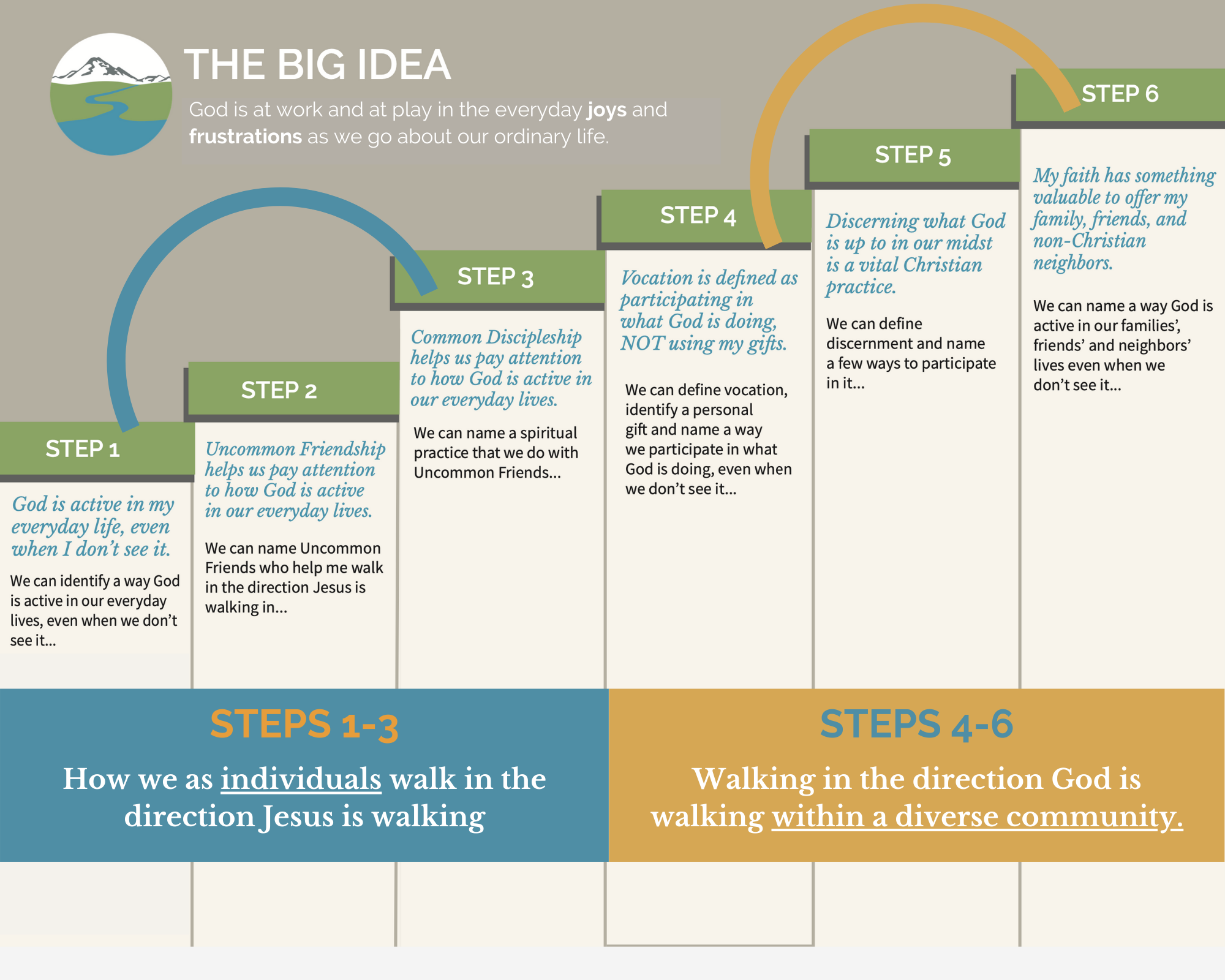When Our Individual Faith Moves Into The Neighborhood
POST BY MATT MCCOY
4 minute read
The next three weeks are a bit of a liminal space for us: We’ve got a big transition ahead. As we’ve been walking through this series on Ruth, the first three steps on The Big Idea are rather interior, personal, and private. Spring Church is continuing to follow Jesus in the neighborhood and pursue the common good.
And we’ve come to the end of the third step.
We’re going to take what we’ve learned about communicating with God, and we’ll experience this with each other in the messiness of our neighborhoods. Honestly, the timing of this couldn’t be better. The second three steps on The Big Idea are rather exterior, community oriented, and public. Ruth isn’t a story about a Moabite woman living in isolation in a foreign country, it’s about walking in the direction God is walking within a diverse community.
A liminal space is a great opportunity to pause and make sure we’re all on the same page. So, in the interest of clarity and memory, let’s review the working definition of our Mission.
An “Uncommon Friendship”
…is a friendship with people who are different than me. At Spring Church, we strive to be honest about the ways in which our differences can cause separation, misunderstanding, and suspicion. Within the stories of the Bible, we see this on display all the time, as the heart of each of these three stories lies within how God is at work and at play with their differences:
Images courtesy of our friends at the Bible Project. Check em out!
And, within those Uncommon Friendships, God often uses their differences to bring them closer to the Kingdom of God, which is what we mean by “Common Discipleship.”
We define “Discipleship” as “walking in the direction Jesus is walking in.” Thus, for Spring Church, “Common Discipleship” means we walk in the same direction as the people we’re with, which are uncommon friends. That means men and women pray together. People experiencing homelessness eat a meal alongside teenagers (well, Covid has put a pause on this). We move at a pace that is hospitable to all.
So, with these definitions in mind, let’s briefly review the first three steps of The Big Idea. We’ve explored how God is active in my everyday life, even when I don’t see it. Since God delights in using uncommon friends (as that chart above demonstrates), we took the time to name uncommon friends who help us pay attention to how God is active in our everyday lives.
Common Discipleship
…is the way we walk in the direction Jesus is walking, so at our next service (the last stop on step #3), we’ll explore “When God’s voice is hard to hear, we pursue a spiritual practice with an uncommon friend.” In the chart above, Common Discipleship was in view during three food based events:
Ruth and Boaz took a lunch break together
Jesus and Zaccheaus ate a meal together
and Jesus and the Woman at the Well had a drink together.
Our interior life, our individual walk with Jesus, has been front and center in our 'community of practice’ we call Heading North. We’ve explored how we cultivate the spiritual practices we need for this journey, as we follow the example of Ruth and Boaz.
And following their example calls us to follow Jesus into the neighborhood. When I look at my neighborhood, I see racial upheaval, a pandemic, a polarizing election, and messy, broken relationships everywhere. I’m grateful for the practice of following Jesus, even when his voice is hard to hear, because I get to live this out immediately. All the time.
The next three steps help us enter the neighborhood and pursue the common good.
With step four, we’ll discover that our vocation isn’t merely using our gifts, it’s participating with what God is already going. “Vocation” comes from the Latin word 'vocare’ which means ‘calling’.
This is also where we get the word “vocal” as in “vocal chords” and such. Our vocation isn’t up to us doing what we want, its about us responding to the God who is calling us. This is a big reason why we spent so much time practicing how to communicate with God: We can’t really figure out our vocation without communicating with the God who is calling us.
Step five cultivates the humility that we don’t pursue our vocation on our own, we need our community to help us discern our vocation (as individuals and as a group). Then, when we cultivate a shared understanding of where God is calling us, we’ll be able to know what our faith has to offer our neighborhood (step six).
Notice the “nationality” column of that chart above, and then think about how often we get to receive help, insight, and advice from non-Americans. In order to help us discern a way forward in the midst of all the racial tension and social upheaval, we’re inviting individuals, groups and churches to join a community of practice from The Global Church Project. If you’re weary of the polarizing language in America, join us in learning from non-American theologians and taking small steps to practice walking in the direction Jesus (also not American) is walking in. Details can be found here.











